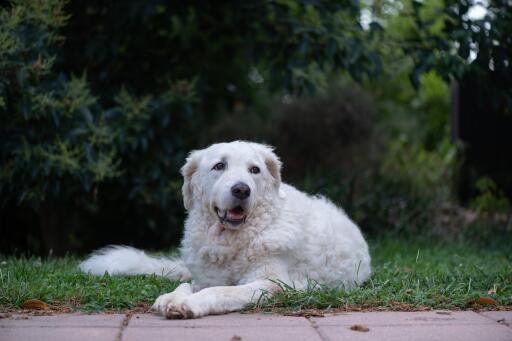
Basenji is a hunting breed that was bred from central African stock. The Federation Cynologique Internationale classifies this breed in the Spitz and Primitive categories. This breed is well-known for its distinct yodel sounds, which are unique to it. It is essential to understand the origins of Basenji and its characteristics before you consider purchasing one.
Basenji's origins
Basenji is a breed of hound with an independent and intelligent personality. Basenji is active and loves to run, sniff and play with their owners. Basenjis come with red, white, and tri-colored coats. Basenjis are also known for being "mischievous dogs."
Basenjis do bark sometimes, but some others are quieter. Basenjis can be quieter than other breeds. Basenjis also possess a strong watchdog instinct. While they don't bark much, this breed can make other noises such as meowing and whining. Basenjis are excellent choices for families with older kids.
Basenji-like dog breeds were discovered in Libyan cave paintings that date back to 6 000 years. They are also found with Pygmy tribes in the Congo Basin and South Sudan. The Egyptians also had Basenjis depicted on relics dating back to 3000 BC. These relics show dogs with curled tails as well as pricked ears.
Characteristics

Basenji's ability to be independent is another characteristic. This can be a positive trait but can cause the dog to become quite independent. Basenjis have a high intelligence level and are more difficult to train than other breeds. Basenjis have high energy levels so they can become bored easily. The breed is very old and even appears on artifacts from ancient Egypt and Babylon.
The Basenji, despite their independence and insularity, is a loving and loyal companion. They are very intelligent and people find them fascinating. Basenji is unique in that it will lick itself unlike many other breeds. They will not clean themselves off your chair or clothes, which is a rare trait among dogs. They are perfect for those who desire a clean, sanitary home.
Care
Although Basenjis are generally healthy breeds, they can develop a variety of health issues. Hypothyroidism is a condition in which the thyroid hormone levels are too low. Dry skin, increased susceptibility and difficulty in recognizing skin diseases, and dilapidations are some of the symptoms. It can also lead the dog to be more fearful, anxious, and overweight. Doctors will evaluate the behavior of the dog and determine whether hypothyroidism is present. In the event of hypothyroidism, replacement hormones will be prescribed.
A Basenji's annual vet bill can range anywhere from $500 to $1,500, so it's important to plan accordingly. Unexpected costs can be covered by pet insurance. There are a variety of pet insurance plans available for Basenjis, and comparing plans is a good way to find a policy that best suits your needs.
Training
Training a basenji is a difficult task. Basenjis are known for their high energy levels and need to be trained. However, obedience can take time. Basenjis should be accustomed to being under the authority of their owner. They will obey commands when given. Here are some suggestions for training your dog. Observe your dog closely and use positive reinforcement. It is important to reward your dog for obeying a command.

Basenjis are sensitive dogs and it is important that positive training methods be used. To teach your dog a new trick, you can use clickers, lures, or positive reinforcement. You should avoid using force to train your dog. Force can lead to aggressive behavior.
Exercise
You can bond with your Basenji by getting your dog to exercise. There are many ways to get your dog moving. A great way to get your Basenji moving is to go for a walk with him or her, or even just to jog. Make sure your dog isn't too hot by dressing appropriately. You can also try walking laps around a local pond. This is an excellent way to give your Basenji extra exercise, without the danger of him wandering off.
Two 30-minute sessions per day is the best way to get your Basenji exercising. The exercise program can be a combination of walks, jogs or supervised play in the yard. Basenjis are highly active dogs and need physical and mental stimulation. You might also want to consider dog sports that involve lots of running.
FAQ
Is it appropriate for children to own a pet at what age?
Children under five years old shouldn't have a pet. Cats and dogs are dangerous for young children.
Most children who have pets are bitten by them. This is especially true of small dogs.
A few breeds of dogs, like pit bulls can be quite aggressive towards other animals.
A dog can be friendly but not aggressive, even if it appears friendly.
Make sure your dog is well-trained if it's your decision to buy a dog. You should also supervise your child when she is playing with the dog.
How to make your pet happy
Pet owners often wonder what they can do to make their pets happy. People buy treats and clothes for pets. This might not work for all pets, as some pets may not like certain items. For example, some dogs cannot stand to wear sweaters.
Try to understand why your pet doesn't love it before you buy it. You might find that your pet likes different types of food than you. Maybe he doesn't like wearing shoes.
Another tip is to play with your pet. You can either use a ball or a Frisbee. Throw it around the room. You can either throw it around the room and let your friend chase it. This game makes both of you laugh. It's relaxing and fun.
A good idea would be to give your pet an occasional bath once or twice a week. Bathing can help remove dead skin cells. It keeps him smelling fresh.
It is vital to keep your pet happy and healthy. Do not give your pet junk food. You should instead feed him quality food. He should also get plenty of exercise. You can take him out for a stroll or play fetch.
Your pet will love spending time with you. In fact, pets are more comfortable being with their owners than living alone.
Last but not least, be sure to unconditionally love your pet. Never yell at him. Be patient with your son. Don't leave him unattended.
What should I do before buying an exotic animal?
Before you go ahead and buy an exotic pet, there are several things you need to think about. First, decide if you intend to keep the pet as a pet or sell it. If you're keeping it as a pet, then make sure you have enough space for it. It is also important to estimate how much time it will take to care for the animal. It takes time to care for an animal, but it's worth it because they give great companionship.
If you want to sell the animal you must find someone who is willing to buy it. Make sure the person buying your animal knows how to take care of it. It is important to not overfeed your animal. This could cause problems for your animal's health later.
If you are considering exotic pets, you should ensure that you thoroughly research them. Numerous websites offer information on different types of pets. Be wary of scams.
How do you feed your pet?
Cats and dogs consume four meals per day. Breakfast is usually dry kibble. Lunch is often some type of meat like chicken, beef or fish. Dinner is often a meal of vegetables, such as broccoli or peas.
Cats have specific dietary needs. Canadian foods should be included in their diet. These include tuna, salmon, sardines, and chicken.
Your pet may also enjoy eating fruits and vegetables. These should not be allowed to your pet too often. Cats are more likely to get sick when they eat too much.
Your pet shouldn't be allowed to drink straight out of the tap. Instead, allow him to drink from a bowl.
Make sure your pet gets enough exercise. Exercise keeps your pet's weight down. It keeps him healthy.
You should clean up after your pet is fed. This will help prevent your pet ingesting bacteria.
Don't forget to brush your pet regularly. Brushing can remove dead skin cells which can lead to infection.
Brush your pet at least twice a week. Use a soft bristle toothbrush. Do not use a wire brush. It can cause irreparable damage to your pet’s teeth.
Be sure to supervise your pet as he eats. He should chew his food well. He may choke on bits of bone.
Garbage cans should be kept away from your pet. This can harm your pet's health.
Your pet should not be left alone in an enclosed space. This includes cars, boats, and hot tubs.
Which of the two is more difficult to train: dogs or cats?
Both. It all depends upon how you approach training them.
You can make them learn faster if they get treats for doing the right thing. However, if you ignore them and don't listen to them, they'll begin to ignore you.
There is no right answer. You need to determine the best way of teaching your cat or dog.
What are some signs that my pet might be sick?
You may notice several symptoms in your dog that could indicate that he is sick. Some symptoms are:
-
Vomiting
-
Diarrhea
-
Lethargy
-
Fever
-
Weight loss
-
Appetite decrease
-
Coughing
-
Difficulty breathing
-
Bleeding from below the nose
-
Stool or urine contaminated with blood
These are just a few. Your vet will know what to look out for.
Should I get a kitten or a puppy?
It really depends on who you are. Some people are more fond of kittens than they are puppies.
However, dogs are more playful and active than their human counterparts. Kittens sleep a lot, and they are very gentle.
Both types of animals need lots of attention from their parents. They will need lots of attention as they grow up and require a lot more care.
Regular medical checks will be required for them. Also, they will require regular medical checkups so you'll have to spend time taking them to see the vet.
Statistics
- It's among a relatively few companies that provide policies with a full (100%) coverage option, meaning you are not responsible for any co-payment of bills. (money.com)
- Pet insurance helps pay for your pet's medical care, with many policies covering up to 90 percent of your vet bills. (money.com)
- For example, if your policy has a 90% reimbursement rate and you've already met your deductible, your insurer would pay you 90% of the amount you paid the vet, as long as you're still below the coverage limits of your policy. (usnews.com)
- It is estimated that the average cost per year of owning a cat or dog is about $1,000. (sspca.org)
- Monthly costs are for a one-year-old female mixed-breed dog and an under one-year-old male domestic shorthair cat, respectively, in excellent health residing in Texas, with a $500 annual deductible, $5,000 annual benefit limit, and 90% reimbursement rate. (usnews.com)
External Links
How To
How to choose a good name for your pet?
Name selection is one of most important decisions when you adopt a pet. Names should reflect the personality and character of your pet.
You need to think about how others may refer to you. And finally, you should think about how you yourself would like to be referred to. What do you prefer, for example, "dog" or pet?
Here are some tips that will help you get started.
-
You should choose a name that suits your dog's breed. Look up the names of the breeds if you know the breed (e.g. Labradoodle). Ask someone who is knowledgeable about dogs to suggest names based on that breed.
-
The meaning behind the name is important. Some breeds are named after people or places, while others are just nicknames. The name "Rover," for example, was given to a Labrador Retriever because he was always running around!
-
How would you like to be called? Is it more fun to be called "dog" than "pet"? Would you rather call your dog "Puppy", "Buddy" or "Buddy?"
-
Be sure to include the name of the owner. It makes sense to give your dog a name that includes your last name but doesn't limit yourself to only including your family members' names. You may have your dog as a part of your extended family.
-
Keep in mind, many pets have multiple nicknames. For example, a cat might go by several names depending on where she lives. At home, she could be called "Kitty Cat", but when visiting friends, "Molly". This is especially true for cats who live outside. They will often adapt their names to match their environment.
-
Be creative There are no rules saying that you must stick to a specific naming convention. Just make sure that you choose something unique and memorable.
-
You must ensure that the name you choose isn't already owned by another person or group. This will ensure that you don't accidentally steal another's identity.
-
Remember that choosing the right name for your pet can be difficult. Sometimes, it can take time to find the right name for your dog. You can keep searching until you find your perfect match.